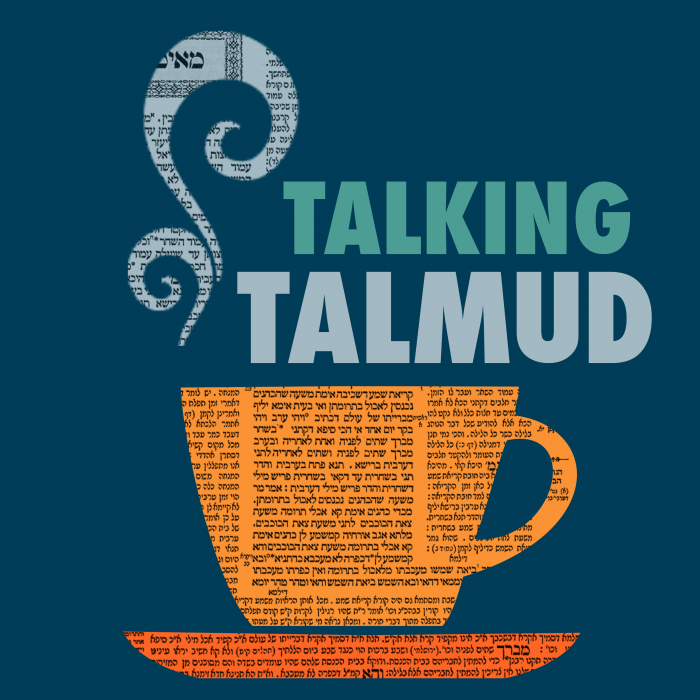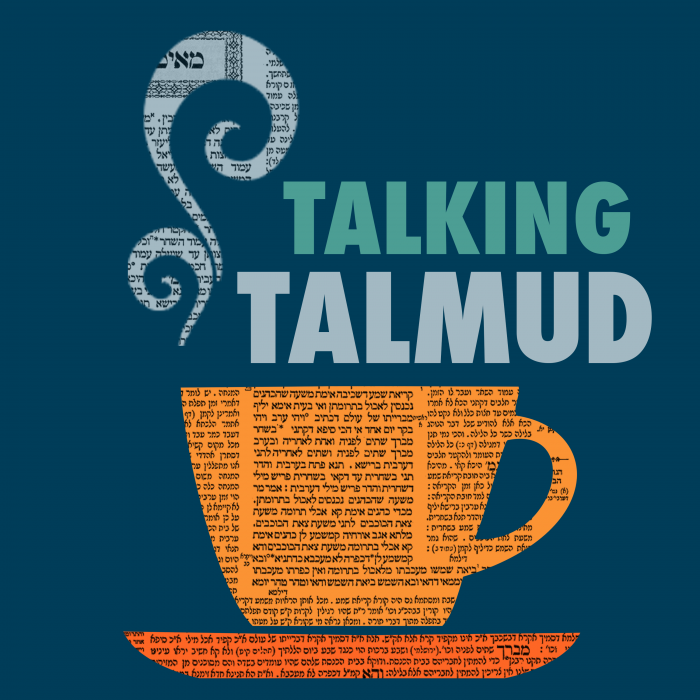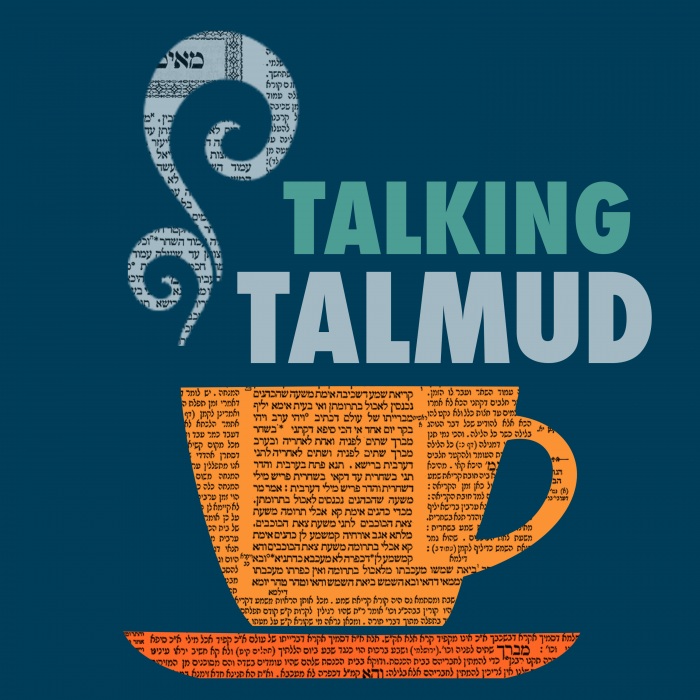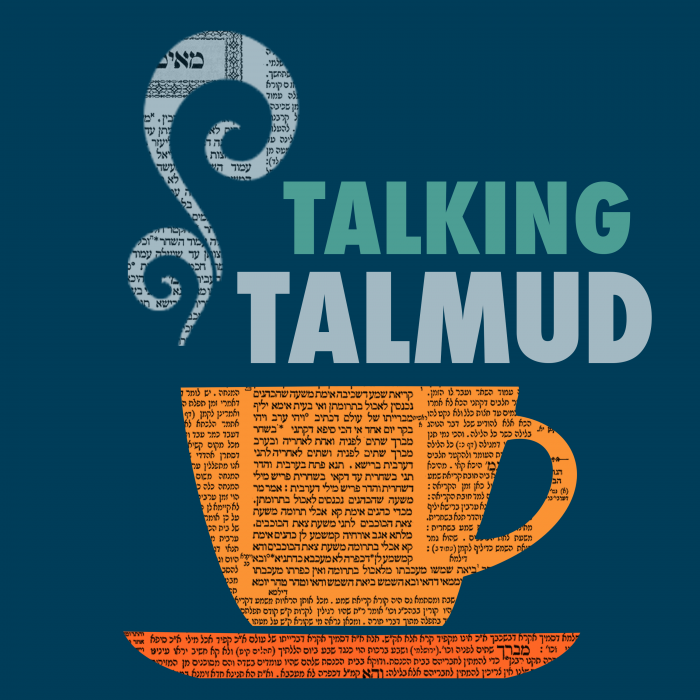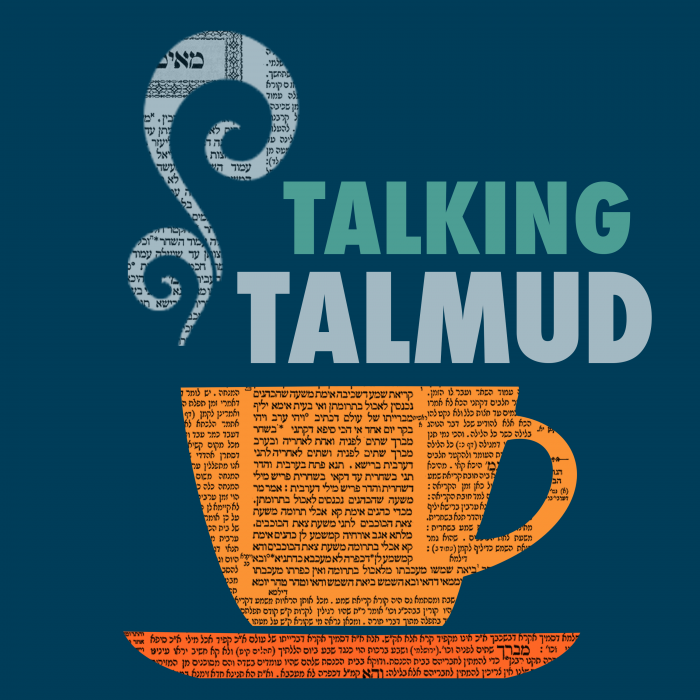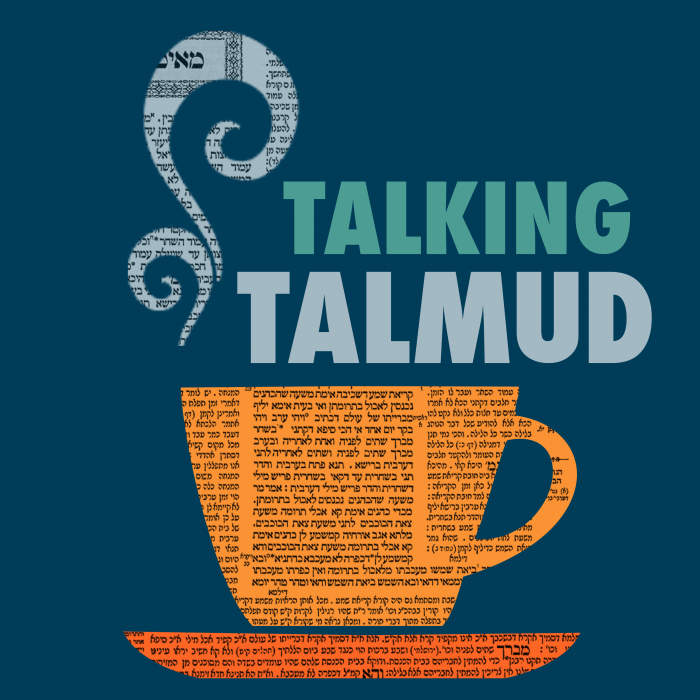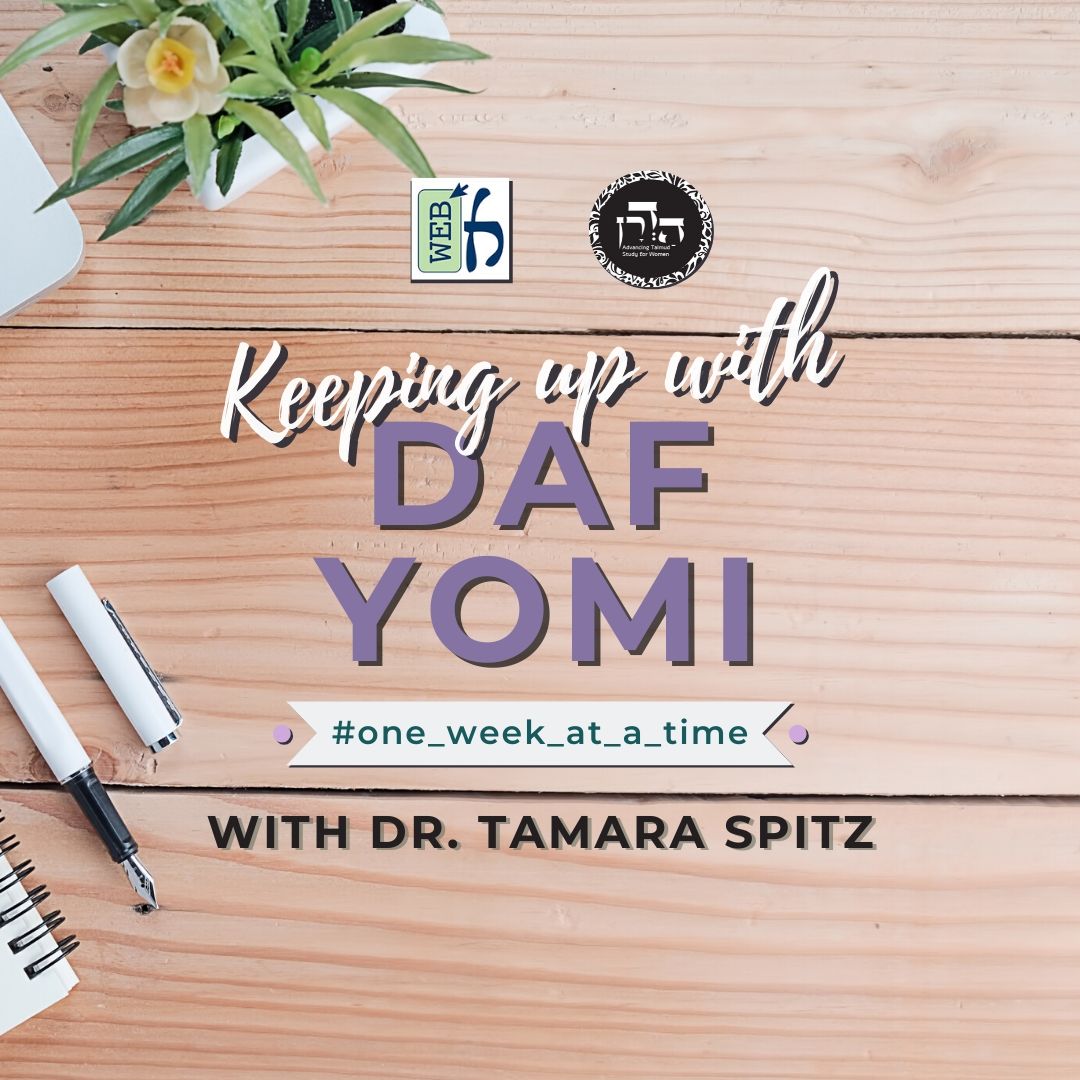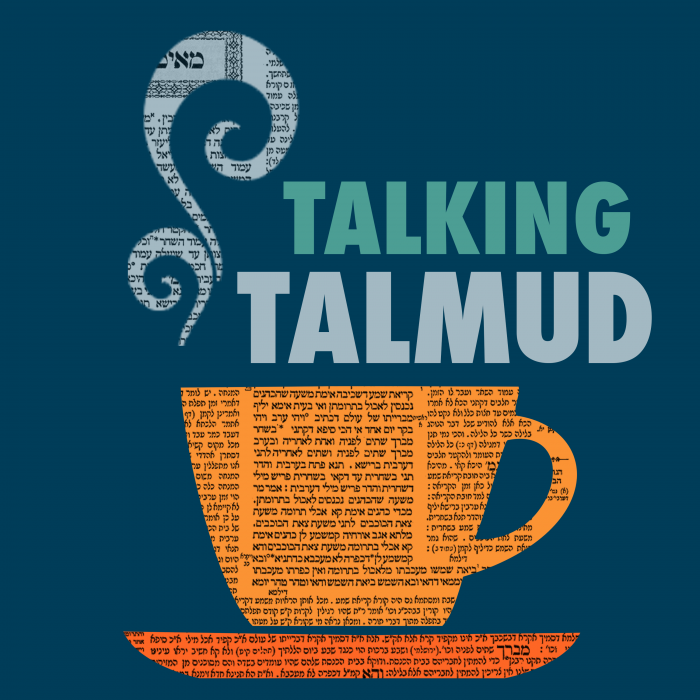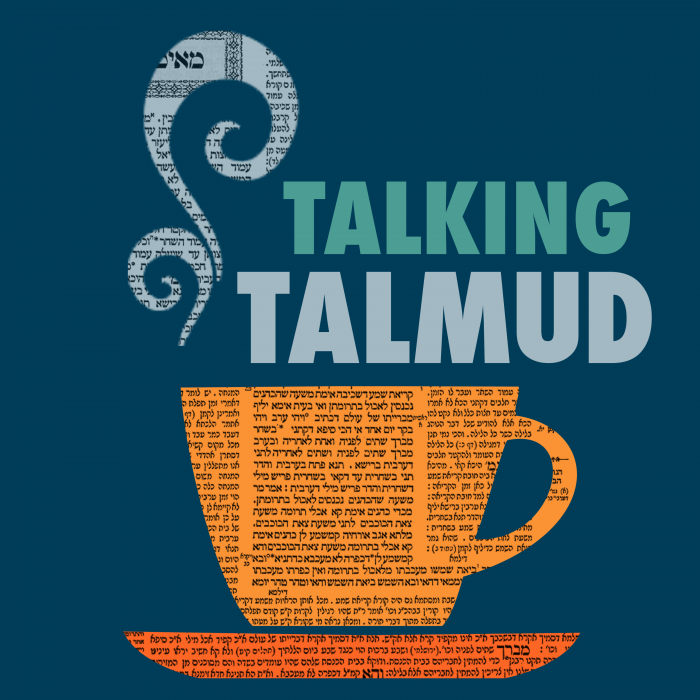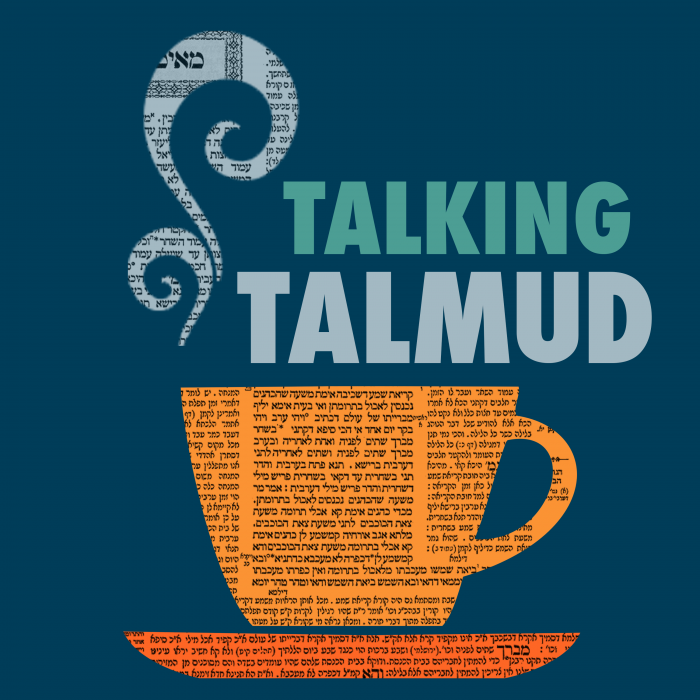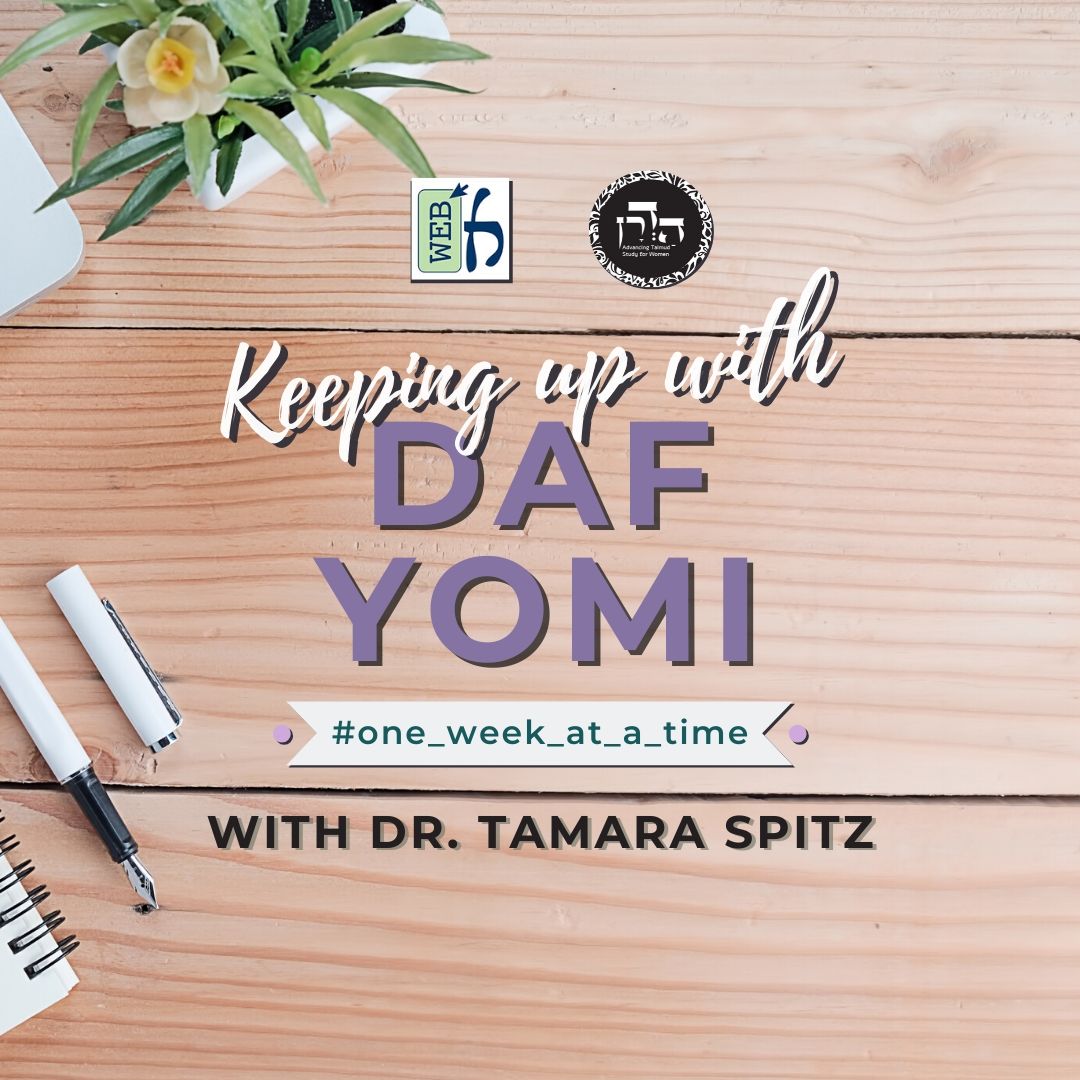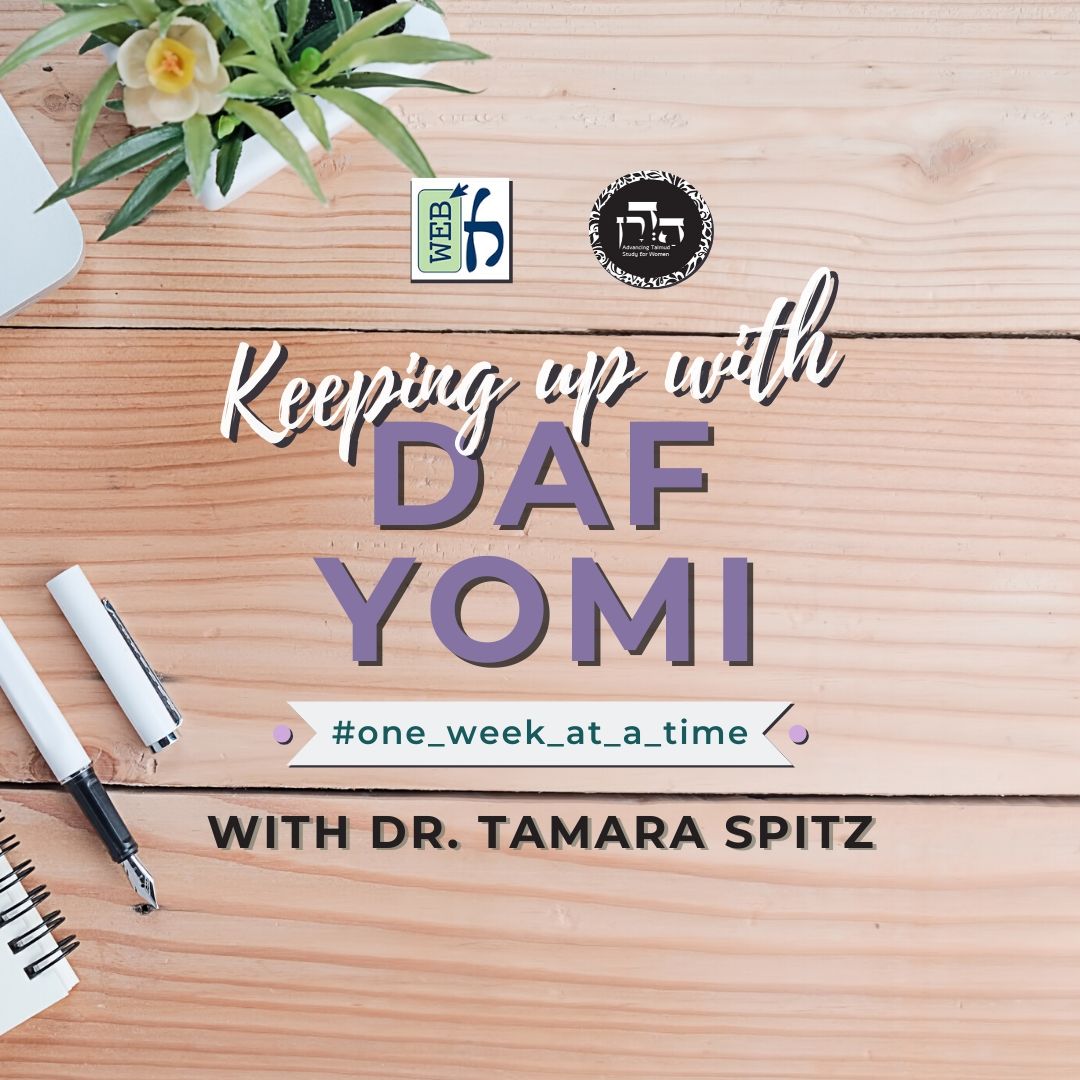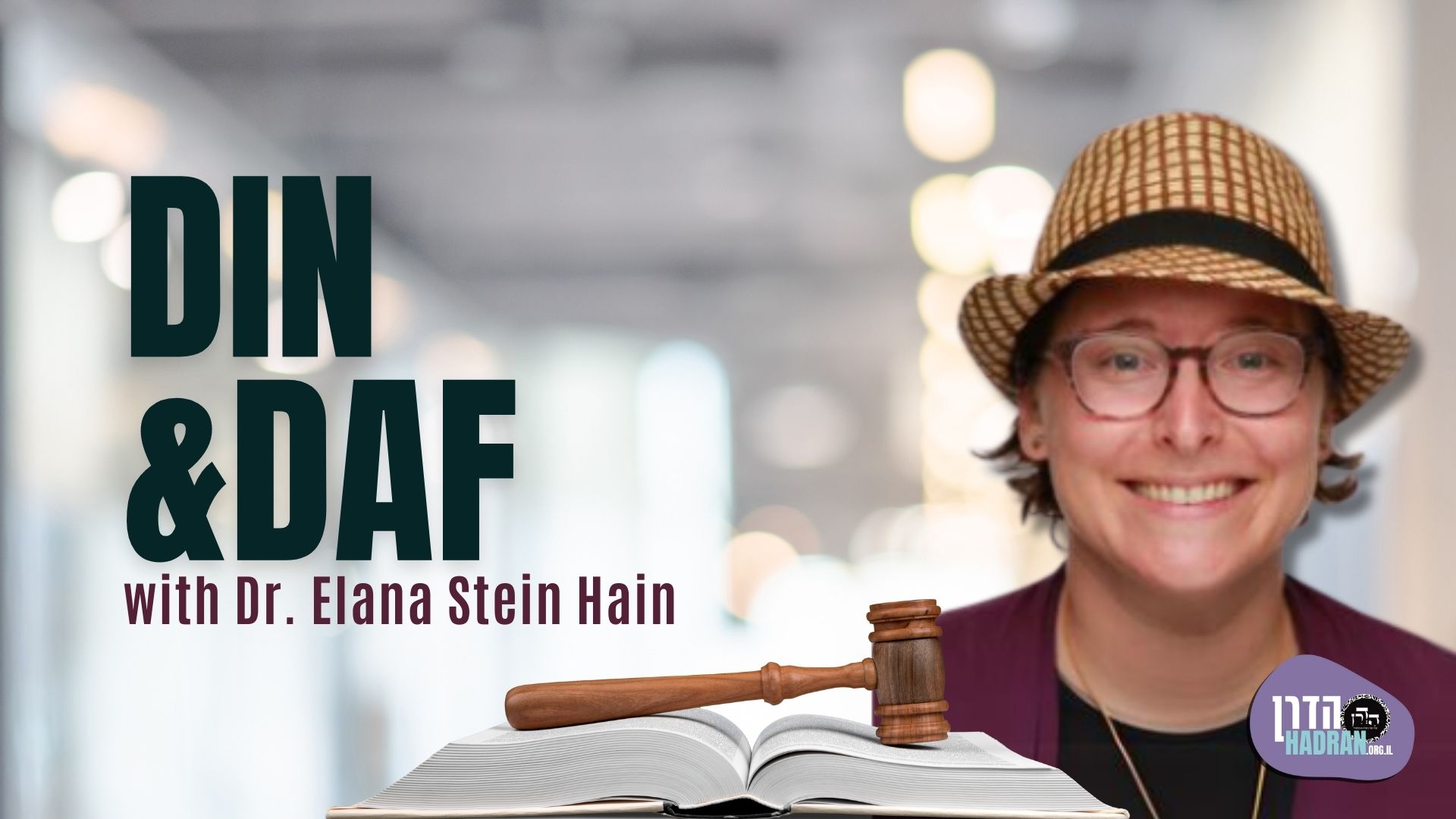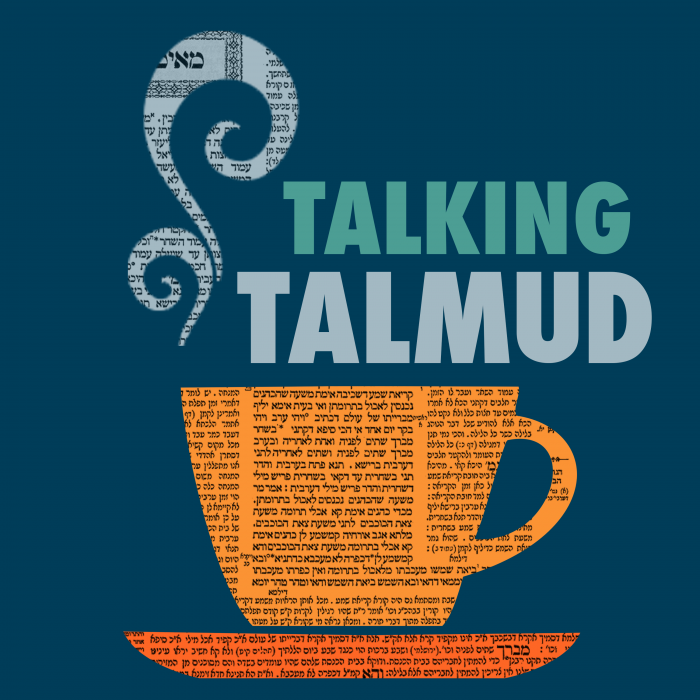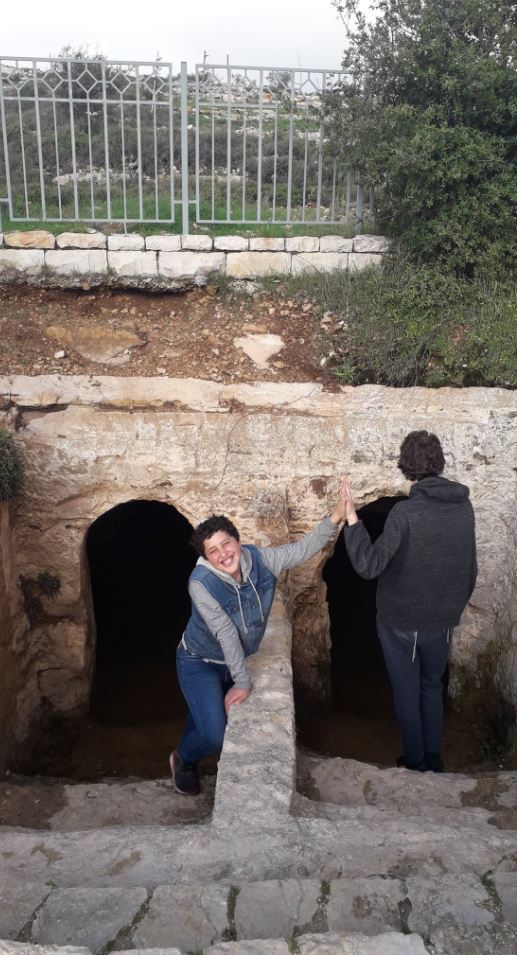An aggadic tale is told of the rabbis of the Negev debating Alexander the Great. After they win the debate, he asks for advice how he can get to the land beyond the dark mountains. When he arrives, he finds a city with only women who also mange to outwit him. Does he learn his lesson? Back to the Temple daily service – the priests have a morning prayer and prepare for the burning of the incense.
This week’s learning is sponsored for the merit and safety of Haymanut (Emuna) Kasau, who was 9 years old when she disappeared from her home in Tzfat two years ago, on the 16th of Adar, 5784 (February 25, 2024), and whose whereabouts remain unknown.
This week’s learning is dedicated of the safety of our nation, the soldiers and citizens of Israel, and for the liberation of the Iranian people. May we soon see the realization of “ליהודים היתה אורה ושמחה וששון ויקר”.
Want to dedicate learning? Get started here:


Today’s daily daf tools:
This week’s learning is sponsored for the merit and safety of Haymanut (Emuna) Kasau, who was 9 years old when she disappeared from her home in Tzfat two years ago, on the 16th of Adar, 5784 (February 25, 2024), and whose whereabouts remain unknown.
This week’s learning is dedicated of the safety of our nation, the soldiers and citizens of Israel, and for the liberation of the Iranian people. May we soon see the realization of “ליהודים היתה אורה ושמחה וששון ויקר”.
Today’s daily daf tools:
Delve Deeper
Broaden your understanding of the topics on this daf with classes and podcasts from top women Talmud scholars.
New to Talmud?
Check out our resources designed to help you navigate a page of Talmud – and study at the pace, level and style that fits you.
The Hadran Women’s Tapestry
Meet the diverse women learning Gemara at Hadran and hear their stories.
Tamid 32
מִן הַשָּׁמַיִם לָאָרֶץ רָחוֹק, אוֹ מִמִּזְרָח לַמַּעֲרָב? אָמְרוּ לוֹ: מִמִּזְרָח לַמַּעֲרָב. תֵּדַע, שֶׁהֲרֵי חַמָּה בַּמִּזְרָח – הַכֹּל מִסְתַּכְּלִין בָּהּ, חַמָּה בַּמַּעֲרָב – הַכֹּל מִסְתַּכְּלִין בָּהּ, חַמָּה בְּאֶמְצַע רָקִיעַ – אֵין הַכֹּל מִסְתַּכְּלִין בָּהּ.
Is the distance from the heavens to the earth further, or is the distance from east to west further? They said to him: From east to west is a greater distance. Know that this is so, as when the sun is in the east, everyone looks at it without hurting their eyes, and when the sun is in the west, everyone looks at it without hurting their eyes. By contrast, when the sun is in the middle of the sky, no one looks at it, as it would hurt their eyes. This shows that the sun’s place in the middle of the sky is not as far from the earth as its remote positions in the extreme east and west.
וַחֲכָמִים אוֹמְרִים: זֶה וָזֶה כְּאֶחָד שָׁוִין, שֶׁנֶּאֱמַר: ״כִּגְבוֹהַּ שָׁמַיִם עַל הָאָרֶץ [וְגוֹ׳] כִּרְחוֹק מִזְרָח מִמַּעֲרָב״. וְאִי חַד מִינַּיְיהוּ נְפִישׁ, נִכְתּוֹב תַּרְוַויְיהוּ כִּי הָהוּא דִּנְפִישׁ! וְאֶלָּא, חַמָּה בְּאֶמְצַע רָקִיעַ מַאי טַעְמָא אֵין הַכֹּל מִסְתַּכְּלִין בָּהּ – מִשּׁוּם דְּקָאֵי לְהֶדְיָא, וְלָא כָּסֵי לֵיהּ מִידֵּי.
But the Sages say: This distance and that distance are equal, as it is stated: “For as the heaven is high above the earth, so great is His kindness toward them that fear Him. As far as the east is from the west, so far has He removed our transgressions from us” (Psalms 103:11–12). The verses compare the extent of God’s kindness and His removal of transgressions to vast expanses. And if one of the distances is greater than the other, let the verse write that both of God’s enumerated attributes are like the measure that is greater. But if so, with regard to the sun in the middle of the sky, what is the reason that no one looks at it? It is because it stands exposed and nothing covers it, whereas it is partially screened when it is in the east or the west.
אָמַר לָהֶן: שָׁמַיִם נִבְרְאוּ תְּחִלָּה אוֹ הָאָרֶץ? אָמְרוּ: שָׁמַיִם נִבְרְאוּ תְּחִלָּה, שֶׁנֶּאֱמַר: ״בְּרֵאשִׁית בָּרָא אֱלֹהִים אֵת הַשָּׁמַיִם וְאֵת הָאָרֶץ״.
Alexander continued to ask questions of the Elders of the Negev. He said to them: Were the heavens created first or was the earth created first? They said: The heavens were created first, as it is stated: “In the beginning God created the heaven and the earth” (Genesis 1:1).
אָמַר לָהֶן: אוֹר נִבְרָא תְּחִלָּה, אוֹ חֹשֶׁךְ? אָמְרוּ לוֹ: מִילְּתָא דָּא אֵין לַהּ פָּתַר. וְנֵימְרוּ לֵיהּ חֹשֶׁךְ נִבְרָא תְּחִלָּה, דִּכְתִיב: ״וְהָאָרֶץ הָיְתָה תֹהוּ וָבֹהוּ וְחֹשֶׁךְ״, וַהֲדַר ״וַיֹּאמֶר אֱלֹהִים יְהִי אוֹר וַיְהִי אוֹר״!
He said to them: Was the light created first, or was the darkness created first? They said to him: This matter has no solution, as the verses do not indicate an answer. The Gemara asks: But let them say to him that the darkness was created first, as it is written: “Now the earth was unformed and void, and darkness was upon the face of the deep” (Genesis 1:2), and only then does it state: “And God said: Let there be light. And there was light” (Genesis 1:3). Why did they not say that the darkness was created first?
סָבְרִי, דִּילְמָא אָתֵי לְשַׁיּוֹלֵי מָה לְמַעְלָה וּמָה לְמַטָּה, מָה לְפָנִים וּמָה לְאָחוֹר.
The Gemara answers that the Elders maintained: We must not answer this question, lest he come to ask questions about Creation that may not be discussed, i.e., what is above the firmament and what is below the earth, what was before Creation, and what will be after the end of the world (see Ḥagiga 11b).
אִי הָכִי, שָׁמַיִם נָמֵי לָא נֵימְרוּ לֵיהּ?! מֵעִיקָּרָא סְבוּר אַקְרַאי בְּעָלְמָא הוּא דְּקָא שָׁיֵיל, כֵּיוָן דַּחֲזוֹ דְּקָהָדַר שָׁאֵיל, סָבְרִי לָא נֵימָא לֵיהּ, דִּילְמָא אָתֵי לְשַׁיּוֹלֵי מָה לְמַעְלָה מָה לְמַטָּה, מָה לְפָנִים וּמָה לְאָחוֹר.
The Gemara asks: If so, if the Elders were concerned about such proscribed questions, then with regard to the creation of heaven as well, they should not have said anything to him. Why did they answer the question about heaven, but not the one about darkness? The Gemara answers that initially they assumed: It is merely incidental that he is asking about the creation of the universe, and therefore there is no need for caution. But once they saw that he again asked about the same general matter, they maintained: Let us not tell him an answer, lest he come to ask: What is above the firmament and what is below the earth, what was before Creation, and what will be after the end of the world?
אָמַר לָהֶם: אֵידֵין מִתְקְרֵי חַכִּים? אֲמַרוּ לֵיהּ: אֵיזֶהוּ חָכָם – הָרוֹאֶה אֶת הַנּוֹלָד. אָמַר לָהֶם: אֵידֵין מִתְקְרֵי גִּבּוֹר? אָמְרוּ לוֹ: אֵיזֶהוּ גִּבּוֹר – הַכּוֹבֵשׁ אֶת יִצְרוֹ. אָמַר לָהֶן: אֵידֵין מִתְקְרֵי עָשִׁיר? אֲמַרוּ לֵיהּ: אֵיזֶהוּ עָשִׁיר – הַשָּׂמֵחַ בְּחֶלְקוֹ.
Alexander said to the Elders: Who is truly worthy of being called wise? They said to him, citing a tradition (see Avot 2:9): Who is the wise person? The one who sees and anticipates the consequences of his behavior. He said to them: Who is truly worthy of being called mighty? They said to him, again citing a tradition (see Avot 4:1): Who is the mighty person? The one who masters his desire. He said to them: Who is worthy of being called wealthy? They said to him: Who is the wealthy person? The one who is pleased with his own portion (see Avot 4:1).
אֲמַר לְהֹן: מָה יַעֲבֵיד אִינִישׁ וְיִחְיֶה? אֲמַרוּ לֵיהּ: יָמִית עַצְמוֹ. מָה יַעֲבֵיד אִינִישׁ וְיָמוּת? יְחַיֶּה אֶת עַצְמוֹ. אֲמַר לְהֹן: מָה יַעֲבֵיד אִינִישׁ וְיִתְקַבֵּל עַל בְּרִיָּיתָא? אֲמַרוּ: יִסְנֵי מַלְכוּ וְשׇׁלְטָן. אֲמַר לְהוּ: דִּידִי טָבָא מִדִּידְכוּ, יִרְחַם מַלְכוּ וְשׇׁלְטָן, וַיַּעֲבֵד טֵיבוּ עִם בְּנֵי אִינָשָׁא.
He said to them: What must a man do and thereby ensure that he will live? They said to him: Such a man must figuratively kill himself, by living moderately. Alexander further inquired: What must a man do and ensure that he will die? They said to him: Such a man must keep himself alive, i.e., lead an extravagant and indulgent life. He said to them: What must a man do and ensure that he will be accepted by people? They said to Alexander: He must hate the king and the authorities and avoid becoming too close to those in power. Alexander rejected their answer and said to them: My advice for gaining people’s favor is better than yours. One who wants to be accepted must love the king and the authorities, but he must use his connections to perform beneficial acts for people.
אֲמַר לְהֹן: בְּיַמָּא יָאֵי לְמֵידַר, אוֹ בְּיַבִּשְׁתָּא יָאֵי לְמֵידַר? אֲמַרוּ לֵיהּ: בְּיַבִּשְׁתָּא יָאֵי לְמֵידַר, דְּהָא כֹּל נָחוֹתֵי יַמָּא לָא מִיַּתְּבָא דַּעְתֵּיהוֹן עַד דְּסָלְקִין לְיַבִּשְׁתָּא.
He said to them: Is it better for a person to live at sea, or is it better to live on dry land? They said to him: It is better to live on dry land, as all seafarers, their minds are constantly unsettled until they reach the dry land.
אָמַר לָהֶן: אֵידֵין מִנְּכוֹן חַכִּים יַתִּיר? אָמְרוּ לוֹ: כּוּלָּנָא כַּחֲדָא שָׁוַויִין, דְּהָא כֹּל מִילְּתָא דַּאֲמַרְתְּ לַנָא – בְּחַד פְּתַרְנָא לָךְ. אָמַר לָהֶן: מָה דֵין אַתְרֵיסְתּוּן לְקִבְלִי! אֲמַרוּ לֵיהּ: סִטְנָא נָצַח.
He said to them: Who among you is wiser than the others? They said to him: We are all equal in wisdom, as every matter that you say to us, we solve for you unanimously. He said to them: What is the substance of this stance, by which you, the Jewish people, oppose me? Since you are my subjects, and my people constitute the majority, you should concede that our lifestyle is superior. They said to him: Your dominance is inconsequential, as sometimes even the Satan is victorious, by convincing people to act in a manner that is clearly incorrect.
אֲמַר לְהֹן: הָא אֲנָא מְקַטֵּילְנָא יָתְכוֹן בִּגְזֵירַת מַלְכִין! אֲמַרוּ לֵיהּ: שׇׁלְטָן בְּיָד מַלְכָּא, וְלָא יָאֵי לְמַלְכָּא כָּזָב. מִיָּד אַלְבֵּישׁ יָתְהוֹן לְבוּשִׁין דְּאַרְגְּווֹן, וּשְׁדִי מְנִיכָא דְּדַהֲבָא עַל צַוְּארֵיהוֹן.
He said to them: Consequently, due to your insolence, I am executing you by the edict of kings. They said to him: Certainly, the authority is in the hand of the king to execute as you wish; but falsehood is unbecoming for the king, and you have pledged not to harm us. Immediately, Alexander dressed them in garments of purple and placed golden chains [menaykha] upon their necks.
אֲמַר לְהֹן: בָּעֵינָא דְּאֵיזִיל לִמְדִינַת אַפְרִיקֵי. אֲמַרוּ לֵיהּ: לָא מָצֵית אָזְלַתְּ, דְּפָסְקִי הָרֵי חשֶׁךְ. אָמַר לְהֹן: לָא סַגִּיא דְּלָא אָזֵילְנָא, אַמְּטוּ הָכִי מְשַׁיֵּילְנָא לְכוּ, אֶלָּא מַאי אֶעֱבֵיד?
When Alexander was preparing to part from the Elders of the Negev, he said to them: I want to go to wage war against the country of Africa [Afriki]; what do you recommend? They said to him: You will be unable to go there, as the Mountains of Darkness block the passes. He said to them: It is not possible for me not to go; and it is due to this reason that I ask you to advise me. Rather than refraining from my campaign, what might I do to cross the Mountains of Darkness?
אֲמַרוּ לֵיהּ: אַיְיתִי חֲמָרֵי לוּבָאֵי דְּפָרְשִׁי בְּהַבְרָא. וְאַיְיתִי קִיבּוּרֵי דְּמַתְנֵי, וּקְטַר בְּהַאי גִּיסָא, דְּכִי אָתֵית (בְּאוֹרְחָא), נָקְטַתְּ בְּגַוַּיְיהוּ וְאָתֵית לְאַתְרָךְ.
They said to him: Bring Libyan donkeys that walk even in the darkness [behavra], and these animals will guide you through those passes. And bring coils of rope, and tie one end of rope on this near side of the mountains, as you are about to enter there, so that when you come to return by the same path, you may take hold of the ropes left from your initial march, and, following them, you will come back to your place.
עֲבַד הָכִי, וַאֲזַל מְטָא לְהָהוּא מָחוֹזָא דְּכוּלֵּיהּ נְשֵׁי. בָּעֵי לְמִיעְבַּד קְרָבָא בַּהֲדַיְיהוּ, אֲמַרוּ לֵיהּ: אִי קָטְלַתְּ לַן, יֵאמְרוּ: נְשֵׁי קְטַל. אִי (קָטֵילְנָא) [קָטְלִינַן] לָךְ, יֵאמְרוּ: מַלְכָּא דְּקַטְלוּהּ נְשֵׁי. אֲמַר לָהֶן: אַיְיתוֹ לִי נַהֲמָא. אַיְיתוֹ לֵיהּ נַהֲמָא דְּדַהֲבָא אַפָּתוּרָא דְּדַהֲבָא.
Alexander did this and went on his campaign. He came to a certain town whose entire population was women, and he wanted to wage battle against them. The women said to him: It is not in your interest to fight us. If you kill us, people will say: Alexander kills women; and if we kill you, people will say: Alexander is the king whom women killed in battle. Instead of fighting them, Alexander said to them: Bring me bread. They brought him bread of gold, upon a table of gold.
אֲמַר לְהוּ: מִי אָכְלִי אִינָשֵׁי נַהֲמָא דְּדַהֲבָא? אֲמַרוּ לֵיהּ: אֶלָּא אִי נַהֲמָא בָּעֵית, לָא הֲוָה לָךְ בְּאַתְרָךְ נַהֲמָא לְמֵיכַל, דִּשְׁקַלְתְּ וַאֲתֵית לְהָכָא? כִּי נָפֵיק וְאָתֵי, כְּתַב אַבָּבָא דְּמָחוֹזָא: אֲנָא אֲלֶכְּסַנְדְּרוֹס מוֹקְדוֹן, הֲוֵיתִי שָׁטְיָיא עַד דַּאֲתֵיתִי לִמְדִינָת אַפְרִיקֵי דִּנְשַׁיָּא, וִילֵיפִית עֵצָה מִן נְשַׁיָּא.
Alexander said to the women: Do people eat bread of gold? They said to him: But if all you wanted was actual bread, didn’t you have bread to eat in your own place? It was not for bread that you took up a campaign and toiled and came here. You must have come to increase your wealth. When Alexander left and came back to his land, he wrote upon the gate of the town: I, Alexander of Macedon, was a fool until I came to the country of Africa of women, and I learned sense from women.
כִּי שָׁקֵיל וְאָתֵי, יָתֵיב אַהָהוּא מַעְיָינָא, קָא אָכֵיל נַהֲמָא. הֲווֹ בִּידֵיהּ גִּלְדָּנֵי דְּמִלְחָא, בַּהֲדֵי דִּמְחַוְּורִי לְהוּ – נְפַל בְּהוּ רֵיחָא. אֲמַר: שְׁמַע מִינַּהּ הַאי עֵינָא מִגַּן עֵדֶן אָתֵי.
§ With regard to Alexander, the Gemara relates: When he took himself and went on his way, he sat at a certain spring and was eating bread. He had salted fish [guldenei] in his hands, and while he cleansed them of their excessive salt, a particularly pleasant fragrance fell upon them. Alexander said to himself: I may conclude from this event that this spring comes from the Garden of Eden.
אִיכָּא דְּאָמְרִי: שְׁקַל מֵהָנְהוּ מַיָּא, טְרָא בְּאַפֵּיהּ. אִיכָּא דְאָמְרִי: אִידַּלִּי כּוּלֵּיהּ עַד דִּמְטָא לְפִתְחָא דְּגַן עֵדֶן, רְמָא קָלָא: פִּתְחוּ לִי בָּבָא! אֲמַרוּ לֵיהּ ״זֶה הַשַּׁעַר לַה׳ וְגוֹ׳״. אֲמַר לְהוֹן: אֲנָא נָמֵי מַלְכָּא אֲנָא, מִיחְשָׁב חֲשִׁיבְנָא, הַבוּ לִי מִידֵּי. יְהַבוּ לֵיהּ גּוּלְגֻּלְתָּא חֲדָא, אַתְיַיהּ תַּקְלֵיהּ לְכוּלֵּיהּ דַּהֲבָא וְכַסְפָּא דִּידֵיהּ בַּהֲדַיהּ, לָא הֲוָה (מַתְקָלֵיהּ).
There are those who say: He took from those waters and washed his face. And there are those who say: He ascended along the length of the entire spring until he reached the entrance of the Garden of Eden. He raised a loud voice, calling out: Open the gate for me! The sentry of the Garden of Eden said to him: “This is the gate of the Lord; the righteous shall enter into it” (Psalms 118:20). Since you are not righteous, you may not enter. He said to them: I too am worthy, as I am a king; I am very important. If I will not be admitted, at least give me something from inside. They gave him one eyeball. He brought it and he weighed all the gold and silver that he had against the eyeball, and yet the riches did not balance against the eyeball’s greater weight.
אֲמַר לְהוֹן לְרַבָּנַן: מַאי הַאי? אָמְרִי גּוּלְגֻּלְתָּא דְּעֵינָא דְּבִישְׂרָא וּדְמָא [הוּא], דְּלָא קָא שָׂבַע. אֲמַר לְהוּ: מִמַּאי דְּהָכִי הוּא? שָׁקְלִי קַלִּיל עַפְרָא וְכַסְּיוּהּ, לְאַלְתַּר תְּקַלָא, דִּכְתִיב: ״שְׁאוֹל וַאֲבַדּוֹן לֹא תִשְׂבַּעְנָה וְגוֹ׳״.
He said to the Sages: What is this? Why does this eyeball outweigh everything? They said: It is the eyeball of a mortal person of flesh and blood, which is not satisfied ever. He said to them: From where do you know that this is the reason for the unbalanced scale? The Sages answered him: Take a small amount of dirt and cover the eye. He did so, and it was immediately balanced by its proper counterweight. The eye is never satisfied while it can see, as it is written: “The netherworld and destruction are never satiated; so the eyes of man are never satiated” (Proverbs 27:20).
תָּנָא דְּבֵי אֵלִיָּהוּ: גֵּיהִנָּם לְמַעְלָה מִן הָרָקִיעַ, וְיֵשׁ אוֹמְרִים לַאֲחוֹרֵי הָרֵי חשֶׁךְ.
The Gemara cites a statement related to its earlier account of Alexander’s journey. The school of Eliyahu taught: Gehenna is above the heavens, and some say that it is beyond the Mountains of Darkness.
תָּנָא רַבִּי חִיָּיא: כׇּל הָעוֹסֵק בַּתּוֹרָה בַּלַּיְלָה – שְׁכִינָה כְּנֶגְדּוֹ, שֶׁנֶּאֱמַר: ״קוּמִי רוֹנִּי בַלַּיְלָה לְרֹאשׁ אַשְׁמוּרוֹת שִׁפְכִי כַמַּיִם לִבֵּךְ נֹכַח פְּנֵי ה׳ (וְגוֹ׳)״. אָמַר רַבִּי אֶלְעָזָר בֶּן עֲזַרְיָה: תַּלְמִידֵי חֲכָמִים מַרְבִּים שָׁלוֹם בָּעוֹלָם, שֶׁנֶּאֱמַר: ״וְכׇל בָּנַיִךְ לִמּוּדֵי ה׳ וְרַב שְׁלוֹם בָּנָיִךְ״.
The chapter, as well as the talmudic portion of the tractate, concludes with words of praise for those who study Torah. Rabbi Ḥiyya taught: With regard to anyone who occupies himself with Torah at night, the Divine Presence is across from him, as it is stated: “Arise, cry out in the night, at the beginning of the watches; pour out your heart like water before the face of the Lord, lift up your hands toward Him” (Lamentations 2:19). Rabbi Elazar ben Azarya said: Torah scholars increase peace in the world, as it is stated: “And all your children [banayikh] shall be taught of the Lord, and great shall be the peace of your children” (Isaiah 54:13). This can be read as bonayikh, your builders, i.e., scholars build and increase peace for the entire world.
הֲדַרַן עֲלָךְ לֹא הָיוּ כּוֹפְתִין
א אָמַר לָהֶם הַמְמוּנֶּה: בָּרְכוּ בְּרָכָה אַחַת! וְהֵם בֵּרְכוּ. קָרְאוּ עֲשֶׂרֶת הַדִּבְּרוֹת, ״שְׁמַע״, ״וְהָיָה אִם שָׁמוֹעַ״, ״וַיֹּאמֶר״.
MISHNA: 5:1 After the priests completed laying the parts of the daily offering on the ramp, they went to the Chamber of Hewn Stone to recite Shema. The appointed priest who oversaw the lotteries in the Temple said to the priests: Recite a single blessing of the blessings that accompany Shema. And the members of the priestly watch recited a blessing, and then they recited the Ten Commandments, Shema (see Deuteronomy 6:4–9), VeHaya im Shamoa (see Deuteronomy 11:13–21), and VaYomer (see Numbers 15:37–41), the standard formula of Shema.
בֵּרְכוּ אֶת הָעָם שָׁלֹשׁ בְּרָכוֹת: ״אֱמֶת וְיַצִּיב״, וַעֲבוֹדָה וּבִרְכַּת כֹּהֲנִים. וּבַשַּׁבָּת מוֹסִיפִין בְּרָכָה אַחַת לַמִּשְׁמָר הַיּוֹצֵא.
Additionally, they blessed with the people three blessings. These blessings were: True and Firm, the blessing of redemption recited after Shema; and the blessing of the Temple service, which is also a blessing recited in the Amida prayer; and the Priestly Benediction, recited in the form of a prayer, without the lifting of hands that usually accompanies that blessing (Tosafot). And on Shabbat, when the new priestly watch would begin its service, the priests would add one blessing recited by the outgoing priestly watch, that love, fraternity, peace, and friendship should exist among the priests of the incoming watch.
ב אָמַר לָהֶם: חֲדָשִׁים לִקְטֹרֶת בּוֹאוּ וְהָפִיסוּ. זָכָה מִי שֶׁזָּכָה, אָמַר לָהֶם: חֲדָשִׁים עִם יְשָׁנִים, בּוֹאוּ וְהָפִיסוּ מִי מַעֲלֶה אֵבָרִים מִן הַכֶּבֶשׁ לַמִּזְבֵּחַ. רַבִּי אֱלִיעֶזֶר בֶּן יַעֲקֹב אוֹמֵר: הַמַּעֲלֶה אֵבָרִים לַכֶּבֶשׁ, הוּא מַעֲלֶה אוֹתָן עַל גַּבֵּי הַמִּזְבֵּחַ.
MISHNA 5:2 The appointed priest said to them: Let only those priests who are new to burning the incense come and participate in the lottery for the incense. Whoever won that lottery won the privilege to burn the incense. The appointed priest said to them: Those new priests, i.e., those who had never performed the service, together with those old priests, i.e., those who had already performed it, may come and participate in the lottery to determine who takes the limbs from the bottom half of the ramp, where they had been placed earlier, up to the altar. Rabbi Eliezer ben Ya’akov says: The priest who takes the limbs up to the ramp is the one who takes them up from the ramp and places them upon the altar.
ג מְסָרוּם לַחַזָּנִים, הָיוּ מַפְשִׁיטִין אוֹתָם אֶת בִּגְדֵיהֶם, וְלֹא הָיוּ מַנִּיחִין עֲלֵיהֶם אֶלָּא מִכְנָסַיִם בִּלְבַד. וְחַלּוֹנוֹת הָיוּ שָׁם, וְכָתוּב עֲלֵיהֶם תַּשְׁמִישׁ הַכֵּלִים.
MISHNA 5:3 The priests who did not win a lottery were still dressed in the priestly vestments that they were required to don when entering the lottery, so that if they won they would be prepared for immediate service. The appointed priest handed over these priests to the care of the attendants [laḥazanim]. The attendants would undress these priests and remove their garments, and they would leave only their trousers on them. After the priests donned their non-sacred garments, they would remove the priestly trousers and don their non-sacred trousers. And there were four storage compartments there in the Temple for the storage of priestly vestments for each priestly watch, and on each of them was written the use of the garment stored there: Trousers, tunic, belt, and mitre.
ד מִי שֶׁזָּכָה בַּקְּטֹרֶת הָיָה נוֹטֵל אֶת הַכַּף, וְהַכַּף דּוֹמֶה לְתַרְקַב גָּדוֹל שֶׁל זָהָב מַחְזֶקֶת שְׁלֹשָׁה קַבִּין, וְהַבָּזֵךְ הָיָה בְּתוֹכוֹ.
MISHNA 5:4 The priest who won the lottery to burn the incense would take the spoon used for carrying the incense. And the spoon was similar to a large gold vessel that held three kav, and the smaller vessel was placed inside the spoon.



